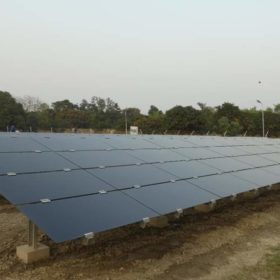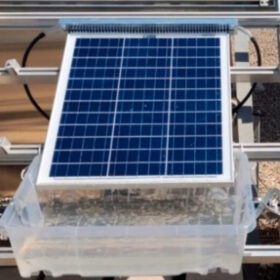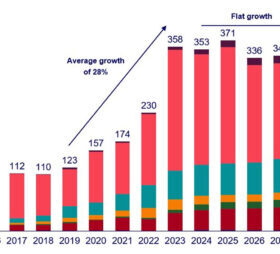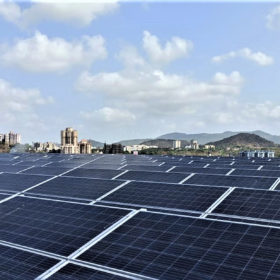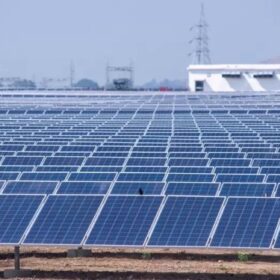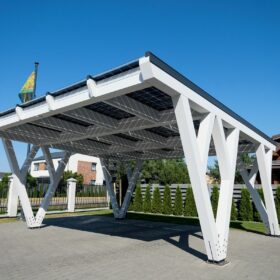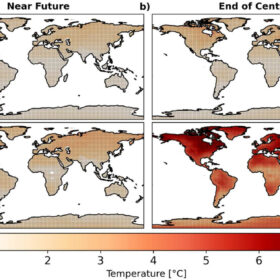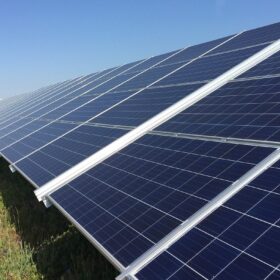Blended finance key to scaling small-scale solar projects
Bringing together private and public capital in a risk-adjusted return structure, is key to scaling up financing for renewable energy assets such as solar mini-grids, says a new report.
Photovoltaics for wastewater disinfection
Researchers in Spain have developed a new system that simultaneously produces PV power and disinfects wastewater.
WoodMac predicts strong yet flat global PV growth through to 2032
Wood Mackenzie says the solar industry has reached a new stage in its evolution and is predicting around 350 GW of global solar installations annually for the next eight years. The research firm is also forecasting challenges for the solar manufacturing sector and long-awaited benefits from the Inflation Reduction Act in the United States.
Solar energy’s vital role in climate change mitigation
With solar taking a more significant portion of the energy and power mix, climate change can be significantly mitigated. Coal, for instance, is one of the dirtiest fuels, but makes up 70% of India’s power generation.
India installed 10 GW of solar capacity in 2023
India added about 6.5 GW of new utility-scale solar capacity in the Jan.-Dec. period of 2023. Capacity addition from rooftop installations was 3 GW. Around 500 MW was installed in the off-grid/distributed solar segment.
Ayodhya set to become UP’s first solar city
The temple town of Ayodhya’s 40 MW solar plant will become fully operational by March 2024. In rooftop PV, a total capacity of 1,073 kW has been established on residential, commercial, and industrial buildings in the city. Solar-powered boats, water kiosks, and streetlights showcase Ayodhya’s dedication to harnessing solar energy across diverse sectors.
Major trends in the Indian solar PV sector
The Indian solar PV sector is experiencing transformative trends, driven by a combination of technological advancements, government support, and a growing awareness of the need for sustainable energy sources. The rapid expansion of solar capacity, coupled with innovations such as floating solar farms and green hydrogen production, paints a promising picture for the future of renewable energy in India.
Solitek launches solar carport for residential, commercial applications
Lithuania-based Solitek has launched a carport product line featuring 370 W glass-glass frameless modules. It is designed to withstand a snow load of up to 2.5 kN/m2 and 27m/s of wind loads.
Solar productivity negatively impacted by emissions and aerosols, study finds
A study by engineers at UNSW, published in the Renewable Energy journal, shows that aerosols and greenhouse gas emissions reduce the productivity of photovoltaic installations and that this differs according to the global region.
Fostering solar adoption requires a holistic approach
While the benefits of solar adoption are evident, challenges persist. The irregularity of solar power and the lack of efficient storage technologies remain primary concerns. The upfront costs of solar installations, though decreasing, remain a barrier for many. Complex regulations and bureaucratic hurdles often deter individuals and businesses from embracing solar energy. Addressing these challenges demands a concentrated effort.
